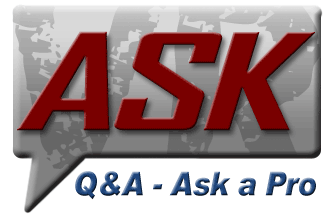The automotive aftermarket is filled with a massive array of parts manufacturers, some of them much better than others. At Vivid Racing, we only offer products we believe in and know our customers will be happy with; this is why popular replica wheel brands like Rota aren’t on our website. For aftermarket wheels, there are two major manufacturing processes: forged wheels and cast wheels.
Almost all cheaper wheels will use a “cast” design while high-end wheels, such as Forgeline, strictly using a “forged” design. Unfortunately, many enthusiasts do not understand the difference between a cast wheel and a forged wheel, and they end up purchasing something not-quite-right for their needs.
Cast Wheels

A cast wheel is made by pouring molten aluminum into a mold where it is formed to the correct shape and sits there until it cools down. Once the wheel cools down, they perform trimming and drilling. Unfortunately, there is one massive flaw with this method of producing wheels: porosity. Porosity is the physical space inside the material once it has cooled, and it allows for weak points to form. The cheapest workaround for this problem is to use larger tolerances, ultimately making the wheel heavier. This method of wheel manufacturing is quick and cheap, allowing for mass production of cheap wheels.
Shop All Cast Wheels
Contrary to what some enthusiasts will tell you, cast wheels are not terrible. A properly built cast wheel will weigh more than a forged wheel, but the build quality is typically more than enough for street use and light track use. Heavy track usage is where you’ll see low-quality cast wheels (often replica wheels) fail, resulting in an ugly crash. A high-quality cast wheel will survive heavy track usage, but the heavier design it not ideal.
Forged Wheels

Machine Forging
There are two methods for making forged wheels: machine forging and mold-form forging. Nearly all forged wheels on the market use machine forging. This process takes a chuck of billet aluminum and subjects it to high temperature and tons of pressure which create a compressed structure which is much stronger than the original piece of billet. The large piece of forged aluminum is machine cut into the desired shape. This is the traditional process for building traditional forged wheels.
Mold-Form Forging
There are a few companies, most notably Rays Engineering, who use the Mold-Form process of creating forged wheels. The Mold-Form process is different, in that the shape of the wheel is creating during the forging process. By creating the shape of the wheel during the forging process, the grain of the metal flows with the shape of the wheel, resulting in much greater strength. After they make the rough forging, a massive machine applies upwards of 10,000 tons of force to the inner and outer rim to create the desired shape.
Shop All Forged Wheels
As we mentioned above, cast wheels are inherently porous; forged wheels aren’t thanks to the heat and pressure they undergo. That strength allows for less material to be used to achieve the desired structural integrity, resulting in a significantly lighter wheel. Often time forged wheels use a “Monoblock” design, but they can also use a two-piece or three-piece design which allows for greater fitment flexibility.
Flow Form Wheels

If you’re a wheel nerd like we are, then you probably know there is a middle ground between cast and forged: flow form/flow forged. This starts with a cast wheel that is purposely made narrower than desired. They then stick the wheel on a machine that spins the wheel while pressing steel roller against the rim area, which compresses and stretches the barrel of the wheel, resulting in forged-like barrel strength and weight. As you may imagine, wheels built using this process fall between the cost of a cast and forged wheel.
This is a great middle ground for anyone who wants something stronger than a cast wheel without paying the price of a forged wheel. Companies like Vorsteiner are very well known for their flow-forged wheels. If you want something as strong as possible, then you should look at a forged wheel, but for most enthusiasts, a flow-forged wheel is the perfect balance between cost and strength.
What’s Best for You?
There is no perfect answer about what kind of wheel is right for you. It all comes down to your intentions with the car and how much you’re willing to spend. If you only want to spend around $2,000, then a set of cast wheels from Volk or flow-forged wheel from Vorsteiner is a great option (there are a ton of other great options, too). If you want to strong possible wheel and you’re willing to spend upwards of $10k or more on a set of wheels, then forged is the way to go without a doubt.
Summary
Understand that this is a very brief overview of the topic and there is a lot left that we didn’t talk about such as load ratings and elongation. To summarize, remember that cast wheels are cheap but good enough for street use, forged wheels are expensive but will hold up to anything you throw at them, and flow formed wheels are between cast and forged.
Shop All Aftermarket Wheels
Check out some of our most popular wheel brands





Comments 1